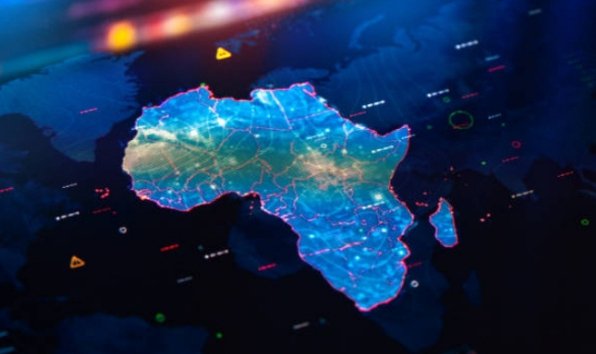More Than 1,000 Cybercrime Suspects Are Captured By African Law Enforcement.
Thanks to the collaboration between private companies and international Law enforcement, authorities in 19 African countries also demolished their networks and infrastructure.

More than 1,000 Suspects who were suspected of participating in ransomware schemes, business email compromise (BEC), and other cybercrimes and digital fraud were apprehended as a result of a coordinated effort by Interpol, Afripol, cybersecurity companies, and authorities in 19 different African countries. Operation Serengeti, a collection of law enforcement operations, led to the arrest of 1,006 defendants who were implicated in at least 35,000 victims and more than $192 million in financial losses.
Algeria, Angola, Benin, Cameroon, Côte d'Ivoire, Democratic Republic Of Congo, Gabon, Ghana, Kenya, Mauritius, Mozambique, Nigeria, Rwanda, Senegal, South Africa, Tanzania, Tunisia, Zambia, and Zimbabwe are among the African countries that participated in the cooperative law enforcement partnership. According to a statement from Interpol's secretary general Valdecy Urquiza, the investigators collaborated with private sector businesses, such as internet service providers and cybersecurity organizations, to exchange intelligence and take steps to interfere with the infrastructure of cybercriminals.
Operation Serengeti shows that we can achieve by working together, and these arrests alone will save countless potential future victims from real personal and financial pain, " Urquiza stated. " We know that this is just the tip of the iceberg which is why we will continue targeting these criminal groups Worldwide." The expanding economy and relative lack of cybersecurity maturity in Africa have drawn the expansion of cybercriminal groups.
Nigeria ranked fifth on the world cybercrime index, an academic attempt to determine the major exporters of cybercrime, where as Russia, Ukraine, China, and the US lead the lists of countries that manufacture the most cybercrime. Due to the common Nigerian prince email hoax, the African country has had difficulty combating the perception of widespread fraud. Other countries, including South Africa, Kenya, and Egypt, have also had to deal with an increase in cybercrime.
CYBER TRAFFICKING IN CAMEROON AND CARD FRAUD IN KENYA
The diverse character of cybercrime throughout the African Continent is highlighted by two schemes that Interpol mentioned in it's report. For instance, a criminal organization in Cameroon operated a multi - level marketing scheme with a trafficking component. The group lured victims with the promise of training and work, they paid a fee, but instead of seeing instructors, they were imprisoned until they recruited more victims.
Authorities said the group made at least #150,000 from fraud. Another scam involved cybercriminals using Bank websites to run scripts that stole money. These scripts used account holders' sessions to withdraw and re-distribute money to businesses in China, Nigeria, and the United Arab Emirates, according to Interpol. The scheme's losses were more than $8.6 million. Almost two dozen people have been arrested so far on suspicion of participating in the plan. A $6 million ponzi scheme in Senegal, an investment scam from Nigeria, and a virtual casino from Angola are examples of other cybercriminal operations. According to Derek Manky, worldwide vice president of threat intelligence for Fortinet, a network security company that provided technical and intelligence support to Interpol, business email compromise remains one of the most significant dangers impacting African Firms.
" Users should be aware of this type of attack and always verify the identity of any source giving instructions, especially for payment and even within your organization." He continues." Threat sharing is important to enable quick mobilization of protections for customers across many vendors and to help break down technical barriers to enabling protections." He asserts that in order to increase understanding of the present threats and appropriate online conduct, African countries - as well as corporations globally - need to make investments in cybersecurity education.














